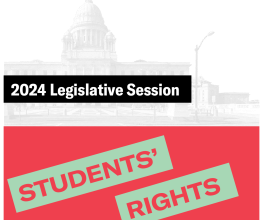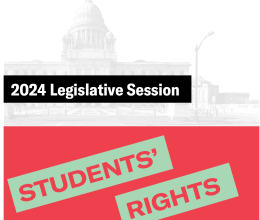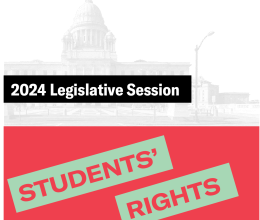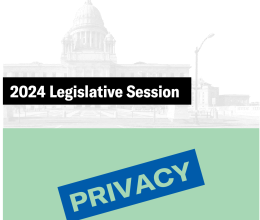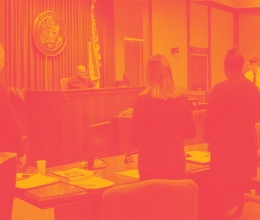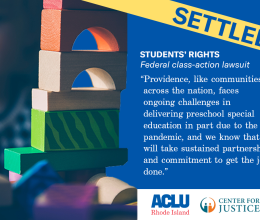The Rhode Island ACLU has filed an administrative complaint against the North Smithfield School Committee for its adoption earlier this year of a “pay to play” policy, charging an “athletic management fee” of $150 for students wishing to participate in interscholastic sports. The complaint, filed before the R.I. Department of Elementary and Secondary Education (DOE) by RI ACLU volunteer attorney Merlyn O’Keefe, argues that the policy violates state law and is in direct conflict with a number of opinions issued by the DOE on this issue over the years.
Thus far, the fee appears to have been less than an unqualified success. According to a report issued to the school committee in late October, only $3,840 had been generated by the requirement, and the school district was not making a concerted effort to enforce the policy against all student athletes. However, concerned that the mandatory fee policy remains in effect, and noting the confusion generated by it, the RI ACLU is seeking a clear ruling from the DOE that the policy is “null, void and unlawful.” The ACLU’s petition also asks the DOE to order the school district to return to parents the money it has thus far received pursuant to the policy.
Although the school district policy contains a fee waiver provision, the ACLU’s petition notes that the DOE has previously ruled that poor families should not “have to request a charitable waiver to earn the right to participate in school supported athletic programs.” The complaint cites at least five previous DOE opinions and letters that found policies like North Smithfield’s to be an unlawful violation of the state’s guarantee of a free public education.
The ACLU first complained about the policy when it was considered by the school committee in July. In a letter to the committee at that time, RI ACLU executive director Steven Brown wrote: “The notion of a free public education is heavily ingrained in our concept of the public school system. The imposition of a generalized fee on student athletes runs counter to this fundamental notion … for many extracurricular activities have become a very important part of the educational system, and help further the goals of a public education in innumerable ways.” The letter also expressed concern that “if the implementation of a fee such as this one is accepted, it is a short step for budget-constrained school districts to begin routinely imposing fees for a variety of other student activities.”


